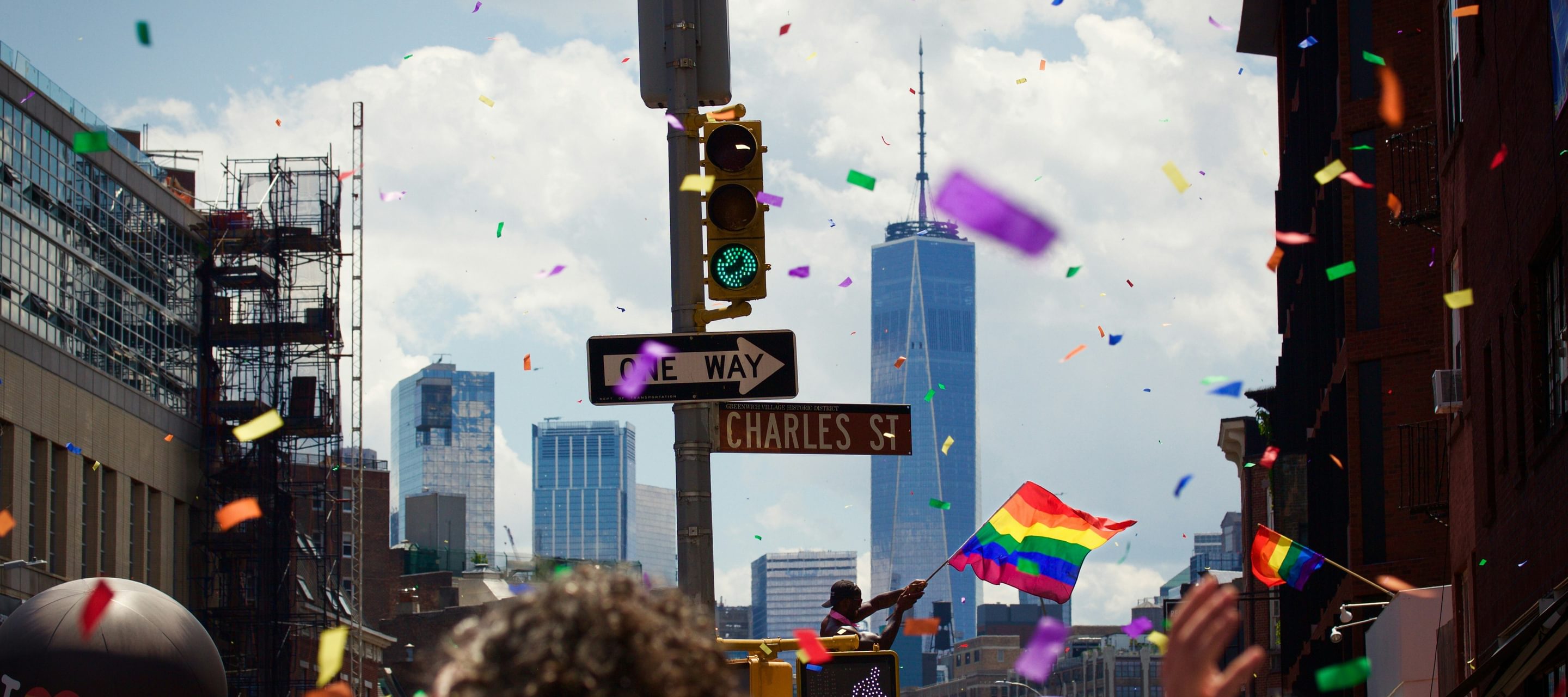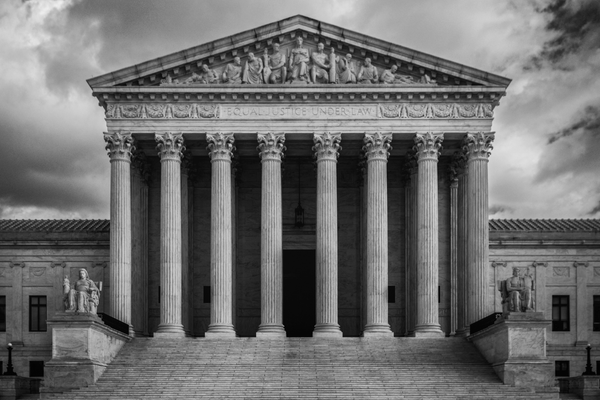Pride doesn’t need fair-weather corporate friends
25 June 2025

As the Pride month nears its end in June with parades across the United States, one thing is clear: corporate commitment to support LGBTQI+ rights has weakened significantly.
Just a decade ago, 379 major US companies, including some of the world’s largest, had eagerly and enthusiastically filed Amicus Briefs at the US Supreme Court, supporting same-sex marriage when the case Obergefell v Hodges came up before the Court. The Court gave a landmark verdict on marriage equality, paving the way for many happy unions and undoing centuries of injustice.
The LGBTQI+ community traces the origin of the Pride movement to the violent police raid at the Stonewall Inn in New York, 1969. The raid on the bar where the gay community met led to many protests and became a global movement. In 2025, raids have stopped, but explosive attacks and massacres haven’t, and the movement’s necessity to organise and march every year worldwide in June is just as important today as it was 50 years ago.
When the LGBTQI+ community and their allies assert pride this month, it is to remind the bigots that they exist, that they’re proud and will celebrate life. This year, there have been pride marches in major American cities as well as in Tokyo (8 June), Toronto (27-29 June), Sao Paolo (22 June), and Paris (28 June). New York, where it began, has its march on 29 June.
However, stung by right wing backlash in the US, the perceived fear over consumer boycotts, and unrestrained hostility from the current US administration, many leading American companies have withdrawn support this year. They used to give generously to Pride marches and other celebrations and flaunt this an example of good corporate citizenship. Companies which had filed the 2015 Amicus Brief included tech giants like Apple, Google, Facebook, Amazon, and Microsoft, consumer-facing companies like Starbucks, Nike, Disney, Procter & Gamble, Target, Coca Cola, and Levi Strauss, and banks including Goldman Sachs, JP Morgan, Citigroup, and Morgan Stanley. Some, among them, are now backtracking. For example, Mastercard, once a platinum-level sponsor of the New York Pride march, has pulled away this year. Citigroup, Pepsico, and PwC, all signatories of the 2015 brief, are not sponsoring the Pride March this year. Anheuser-Busch, Comcast, and Diageo, which too signed that brief, have withdrawn from several marches across the US, and Target, once a proud champion, is a ‘silent partner’ this year. Which is rather odd for a ‘Pride’ march, where instead of flaunting one’s association, the company wishes to hide.
The backlash is not restricted to the United States. As the EqualDex index shows, governments are retreating from their commitments in many parts of the world. There are divisions within countries, between conservative national governments and liberal city mayors, as in Hungary. Kenya, Uganda, Saudi Arabia, and Russia are among the countries where crackdowns have continued. To some extent, this is a reversal of progressive trends which had shown promise in recent years.
LGBTI Rights – standards for business
In 2016, we at IHRB were pleased to work with the UN Human Rights Office to research, consult, and write the Standards of Conduct for Business with regard to LGBTI rights which went public in 2017. Today more than 500 signatories have expressed support for the standards. Companies like Microsoft (in the United States and Belgium) and Godrej (in India) hosted consultations, and later, the launch of the Standards. This was a multi-national, collective endeavour across business and civil society.
As my co-author and friend Fabrice Houdart put it when I asked him recently: “The Standards are even more relevant in the current context than when they were first published. They remind companies that they have responsibilities toward their LGBTQI+ employees—and an opportunity to support the broader human rights agenda. This is not philanthropy, it’s not charity—it reflects the reality of human diversity and the role business plays in shaping inclusive societies.”
But we live in a different world since the Standards were published, and the mood has changed. Corporate sponsorship has been drying up, and organisers of pride marches are scrambling for resources – they need hundreds of thousands of dollars, and the sponsors are scared.
Kowtowing to political change
The corporate timidity is not surprising. The steps the Trump administration has taken undermining LGBTQI+ rights are inhumane: last week, it decided to withdraw support for suicide prevention hotlines for LGBTQI+ people. The Supreme Court upheld a Tennessee law restricting care for young transgender people. Names of LGBTQI+ icons from US military and elsewhere are being removed.
This, when there is a generational change: while younger people in the US and beyond support diversity, in particular LGBTQI rights, companies have turned timid; they appear to be more worried of being denied government contracts or hauled up before courts by government lawyers who have launched a war on diversity by challenging companies and institutions, saying that they undermine equality if they attempt to set historical societal wrongs through affirmative action and promoting diversity, equity, and inclusion.
It wasn’t always like that. A decade ago, companies expressed solidarity with women and took vigorous steps to root out sexual harassment in response to the Me-Too movement. When a police officer murdered George Floyd, companies embraced Black Lives Matter movement. Several companies recognised the threats posed by climate change and initially did not back off from their commitments to net zero and other climate targets. Some companies even explored creative ways they could support their women employees’ right to choose after the Supreme Court overruled the crucial 1973 judgment, Roe v Wade, and severely restricted abortion rights. And companies keen to increase their markets and widen the pool of applicants to choose from understood the value of diversity.
But the noise in America against such corporate activism has grown from activist investors, religious groups, conservative politicians, and others, including some in the academia, who narrowly interpret the purpose of a corporation, and who believe fixing broken societies is not the job of a company. Better be safe than sorry, is the new corporate mantra. And many companies are running scared.
In fact, some American companies are stooping, but they won’t conquer. PepsiCo, IBM, and Target are among the many companies, which include major brands, who are busy scrubbing references to commitments to diversity from their websites and crawling when they’ve been only asked to bend a little. Some are removing references that might arouse Trumpian ire. Some are rebranding their work, hoping that the wolves will spare them. This is shameful.
Genuine allyship is needed
To be sure, not all companies are in retreat. Some, like L’Oreal, continue to support LGBTQI+ rights aggressively, and others are doing it quietly. The tech giant Apple, supermarket chain Wegmans, garment manufacturer Levi’s, other brands like Converse, Hollister, Puma, and others have continued to back LGBTQI+ rights. Smaller companies like Brooklyn Beer have show conviction.
True, some of these companies aren’t American (such as L’Oreal and Puma). And some American firms, like Levi’s and Apple, have routinely defied norms and cast their lone furrows; and some, like Wegmans and Brooklyn Beer, are smaller brands holding their ground and values on ethics. The companies that do stand up are to be commended and supported. They show real, genuine allyship, and their actions cannot be dismissed as tokenism.
It is worth learning from the experience of Singapore’s Pink Dot movement, which is the island republic’s version of Pride. When the government asked foreign companies to stop supporting Pink Dot, arguing their support would amount to interfering in Singapore’s internal affairs, many western firms retreated: but Singaporean businesses rose to the occasion and raised money and resources to support Pink Dot. And the movement has continued to grow.
Likewise, when India’s supreme court overruled a high court decision that decriminalised same sex relationships, Indian film stars and companies like Godrej, Lalit Group, Hidesign, Amul, and Tanishq, championed LGBTQI+ rights, and Anouk even created a memorable ad.
The LGBTQI+ movement does not need fair-weather friends. There is a lesson companies must learn: when the going gets tough, the tough don’t wince. When the stakes rise, companies cannot lie low and hope that the hurricane will go away. They cannot opt for the path of least resistance. They have to sail against the wind – because unlike markets, people have memories, and corporate backsliding won’t be forgotten.




